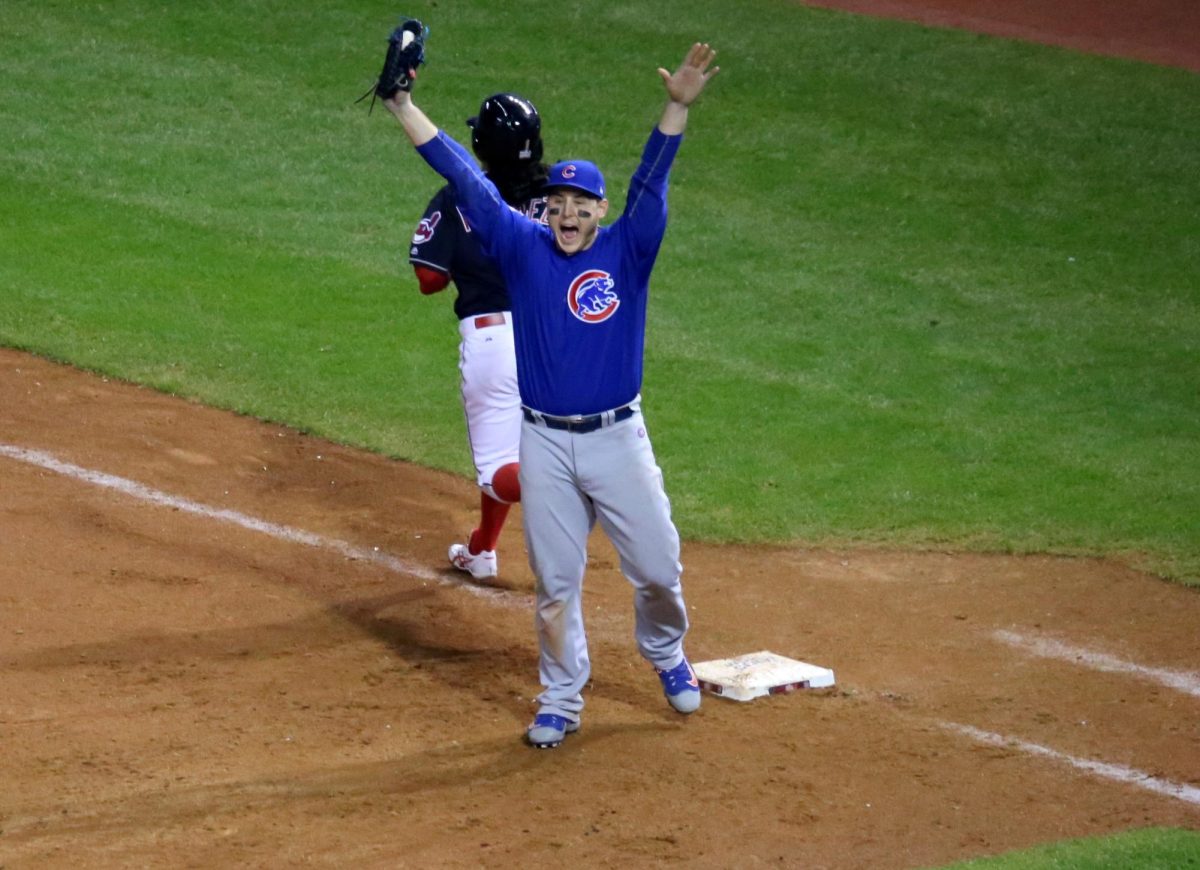There is a certain magic that envelops the game of baseball.
My dad will read this — hi! — and tell me I’m too young to know that. He will claim that baseball has not been truly magical since the late ’90s, when the Yankees won three straight World Series. Perhaps he will point to the early 2000s, when shortstop Derek Jeter captained a team of Yankees legends. But he will almost certainly grumble at the assertion that baseball has been magical at any time in the last 10 years.
I refuse to subscribe to the belief that baseball is only magical when the Yankees are successful. But I also recognize that, in the last handful of years, the magic of baseball has dimmed.
The culprit is evident: Major League Baseball (MLB) Commissioner Rob Manfred is overzealous about changing the rules of a barely-flawed game.
I have no gripes about the introduction of the pitch clock — it has undeniably reduced dead time and lured new fans into the stadium.
However — due to the introduction of the balanced schedule, new fans will be introduced to a game of baseball completely unrecognizable from the one I fell in love with as a child.
Up until the 2023 season, I could turn on the TV and reliably expect to see the Yankees square off against a familiar opponent. They played their American League East rivals exactly 19 times, faced other American League (AL) squads less often and met their designated interleague rivals twice.
The remaining few games were against teams from the fearsome, mysterious National League (NL).
I remember waiting for MLB to release their schedule every year. I’d scan the pages, eager to see which NL teams the Yankees would meet that year. It was an internal battle — did I want the Yankees to play the Los Angeles Dodgers so that I could watch future Hall-of-Fame starting pitcher Clayton Kershaw throw a masterpiece? Or did I want them to face the middling Pittsburgh Pirates and likely collect some wins?
Either way, interleague games brought a special shade of magic to my living room.
The 2023 season’s new balanced schedule siphoned that away in a flash.
Now, every team is guaranteed to face every other team, every season. This comes at the expense of intradivisional games. It also comes at the expense of my heart.
Facing an interleague rival is no longer magical — it is the expectation. I no longer have to wait three years to watch my Yankees take on the loathsome Dodgers.
It is as if I looked forward to Halloween every year, and then Halloween suddenly became a monthly holiday. It would lose its allure immediately.
Rarity brings magic, and the MLB has failed to protect it.
But baseball’s magic is not just a product of rare interleague play. Rather, frequent games against a team’s most hated rivals are the necessary second component.
I’m a rabid Yankees fan. I despise the Boston Red Sox. Looking at their offensively-red uniforms and scraggly beards makes my blood boil. But the thrill that I feel when watching the Yankees play them is undeniable.
By balancing the schedule, MLB is not only yanking away the fun of interleague play — it is reducing the number of times I can feel that thrill.
I’ve already fallen down the rabbit hole. Nothing short of the Yankees moving to Connecticut could threaten my fandom — but part of the reason I became a fan was the appeal of watching games against a sworn enemy, and another part was the occasional treat of interleague play.
I worry the magic that lured me in might be too weak to have the same effect on the next generation.
I hate change — my dad can also tell you that if he is still reading. But sometimes, I recognize that change is necessary. The pitch clock, for example, was necessary. Adapting the game to make it more appealing to younger fans is similarly necessary.
The balanced schedule is not.
In my last column, I told you that “tradition for the sake of tradition is lunacy.” But so is change for the sake of change — and that’s exactly what this is.










Bill E. Martin • Feb 9, 2024 at 7:28 am
Well stated. And the Red Sox are evil.